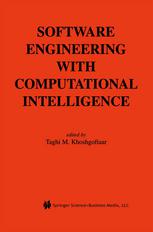

Most ebook files are in PDF format, so you can easily read them using various software such as Foxit Reader or directly on the Google Chrome browser.
Some ebook files are released by publishers in other formats such as .awz, .mobi, .epub, .fb2, etc. You may need to install specific software to read these formats on mobile/PC, such as Calibre.
Please read the tutorial at this link: https://ebookbell.com/faq
We offer FREE conversion to the popular formats you request; however, this may take some time. Therefore, right after payment, please email us, and we will try to provide the service as quickly as possible.
For some exceptional file formats or broken links (if any), please refrain from opening any disputes. Instead, email us first, and we will try to assist within a maximum of 6 hours.
EbookBell Team

4.0
56 reviewsThe constantly evolving technological infrastructure of the modem world presents a great challenge of developing software systems with increasing size, complexity, and functionality. The software engineering field has seen changes and innovations to meet these and other continuously growing challenges by developing and implementing useful software engineering methodologies. Among the more recent advances are those made in the context of software portability, formal verification· techniques, software measurement, and software reuse. However, despite the introduction of some important and useful paradigms in the software engineering discipline, their technological transfer on a larger scale has been extremely gradual and limited. For example, many software development organizations may not have a well-defined software assurance team, which can be considered as a key ingredient in the development of a high-quality and dependable software product. Recently, the software engineering field has observed an increased integration or fusion with the computational intelligence (Cl) field, which is comprised of primarily the mature technologies of fuzzy logic, neural networks, genetic algorithms, genetic programming, and rough sets. Hybrid systems that combine two or more of these individual technologies are also categorized under the Cl umbrella. Software engineering is unlike the other well-founded engineering disciplines, primarily due to its human component (designers, developers, testers, etc. ) factor. The highly non-mechanical and intuitive nature of the human factor characterizes many of the problems associated with software engineering, including those observed in development effort estimation, software quality and reliability prediction, software design, and software testing.